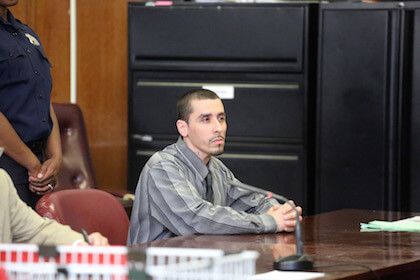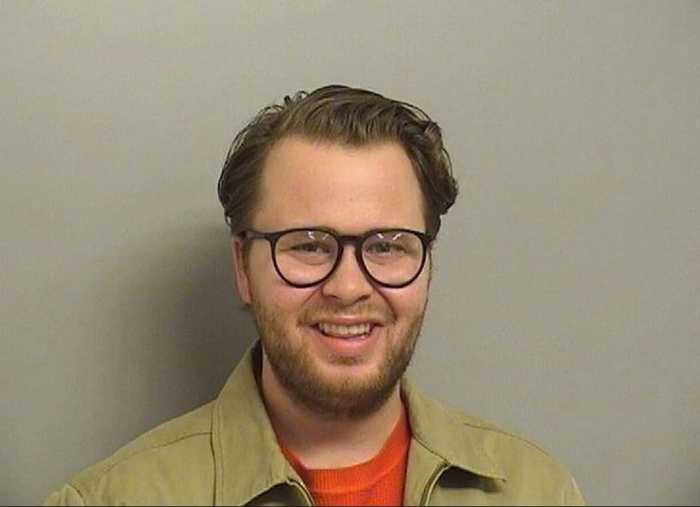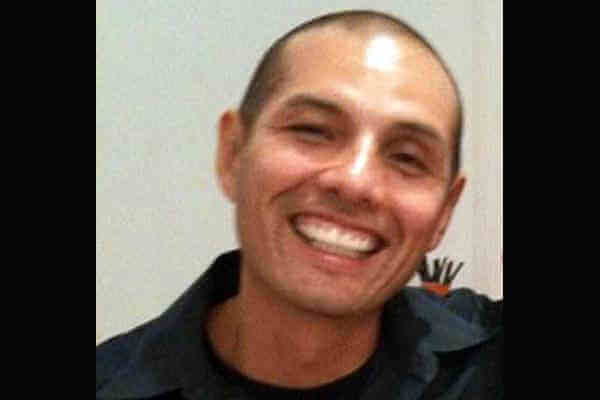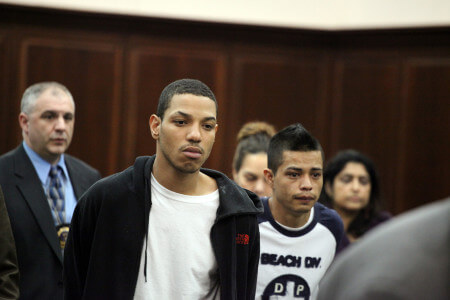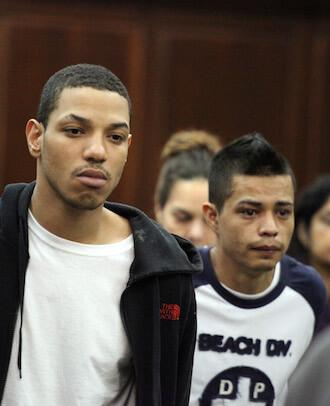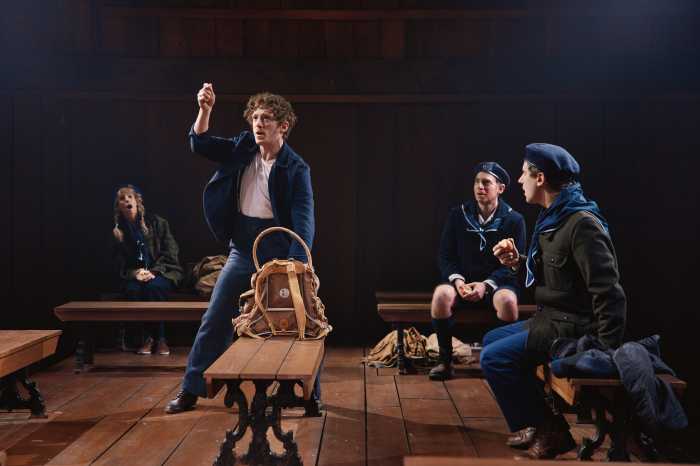Elliot Morales in court on May 26. | GAY CITY NEWS
BY DUNCAN OSBORNE | A Manhattan judge tossed out several incriminating statements made by the accused killer of Mark Carson because police failed to give Elliot Morales his Miranda warnings and the assistant district attorney who took Morales’ videotaped statement ignored his request to remain silent and his refusal to answer questions.
“All the statements made between 8:00 and 11:00 and the Q and A are suppressed,” Judge Charles H. Solomon said during a May 26 hearing.
Morales, 35, is charged with second-degree murder as a hate crime, weapons possession, and menacing in the May 18, 2013 killing of Carson, a 32-year-old gay man, in the West Village. He was arrested within minutes of the shooting, which occurred just after midnight. Once in police custody, law enforcement was required to inform Morales of his right to remain silent, his right to an attorney, and other Miranda rights if they wanted to use any statements he made at his trial. Statements that are made voluntarily or are spontaneous utterances are exempt from the Miranda requirements.
Some police, district attorney questions thrown out, but prosecution case in 2013 murder remains strong
Morales made a series of incriminating statements, including seven in which he directly admitted to the killing, immediately after his arrest. Some of his statements were recorded by police on their cell phones. The defense wanted them suppressed. Solomon said they can be used in the prosecution case.
Between 8 a.m. and 11 a.m. on May 18, when Morales was being held in a 6th precinct interview room, a police sergeant and two detectives repeatedly asked Morales his name, address, sexual orientation, and other so-called pedigree questions, which they are allowed to do without Mirandizing a suspect.
During those three hours, Morales first said, “I feel uncomfortable giving out my personal information. I know my Miranda warnings. I have the right to remain silent and not answer any questions,” and then, “You have my ID. I am not telling you anything. I know my Miranda rights.”
Solomon suppressed the statements Morales made during those three hours. Police are not allowed to engage in banter or apparently idle conversation in the hopes of eliciting incriminating statements.
Morales was Mirandized for the first time at the start of a videotaped statement that he gave to Joan Illuzzi-Orbon, an assistant district attorney. That videotape, which Solomon suppressed, began at 1 p.m. on May 18 and within the first eight minutes, Morales said “I don’t feel comfortable answering questions,” and then, “Can I go with remaining silent?,” and finally, “I refuse to answer any more questions.”
Solomon allowed the prosecution to use the suppressed statements in a cross-examination of Morales, if he testifies, and during a rebuttal case if the prosecution presents such a case following any defense case.
“Those statements can be used should the defendant testify at trial,” he said. “They can be used in rebuttal.”
Even without these statements, the case against Morales remains strong. He had the gun that was used to kill Carson in his possession at his arrest. At least three witnesses identified Morales as the killer soon after the shooting in show-ups. In a show-up, as opposed to a line-up, the suspect is alone when viewed by a witness and, as was the case with Morales, is often in police custody and in handcuffs. The defense asked to suppress the show-ups, but Solomon admitted them.
The prosecution may have a fourth witness who was present at the shooting and is a longtime friend of Morales.
In a material witness warrant that Morales submitted to Solomon earlier, Morales wrote that Joe Anthony Matos is “a very close friend of mine of twenty years who had been one of the individuals I was with prior to the occurrence of the incident I am being accused of committing.” Morales also wrote that Matos was recently arrested and “police seized one firearm and two loaded magazines” from him. Solomon refused to issue that material witness warrant.
Criminal court records show that a Jose A. Matos was arrested in Queens earlier this year and charged with possessing a firearm. Matos received a desk appearance ticket, which means police briefly took him into custody and he was released without posting bail and given an adjournment in contemplation of dismissal, which means the charges against him will be dropped in November if he is not arrested again. Morales’ trial should be over by then.
At the May 26 hearing, Gary Sunden, Morales’ current attorney, said that Matos was “right at the scene” of the shooting. Matos’ family is not being helpful to Morales. During a May 11 hearing, Sunden said that when he contacted a female relative of Matos, she refused to speak with him.
“That woman was very harsh,” he said. “She told me, ‘Don’t call me again. We don’t want to have anything to do with Elliot Morales.’”
Morales has gone through three attorneys prior to Sunden, who is now saying he is unavailable to advise Morales until late October. Morales continues to insist on defending himself. On May 26, he objected when Solomon said he would appoint a fifth attorney to be his legal advisor.
“I’ll let you start off representing yourself,” Solomon said. “If you want to switch, I’ll let you do it… I’m doing this as a precaution for you.”

